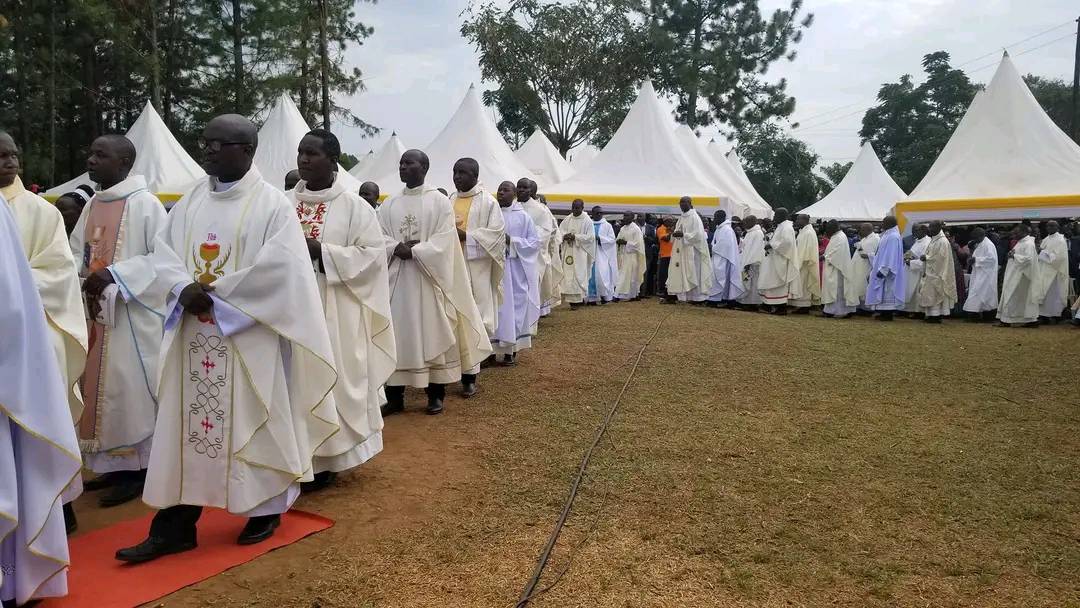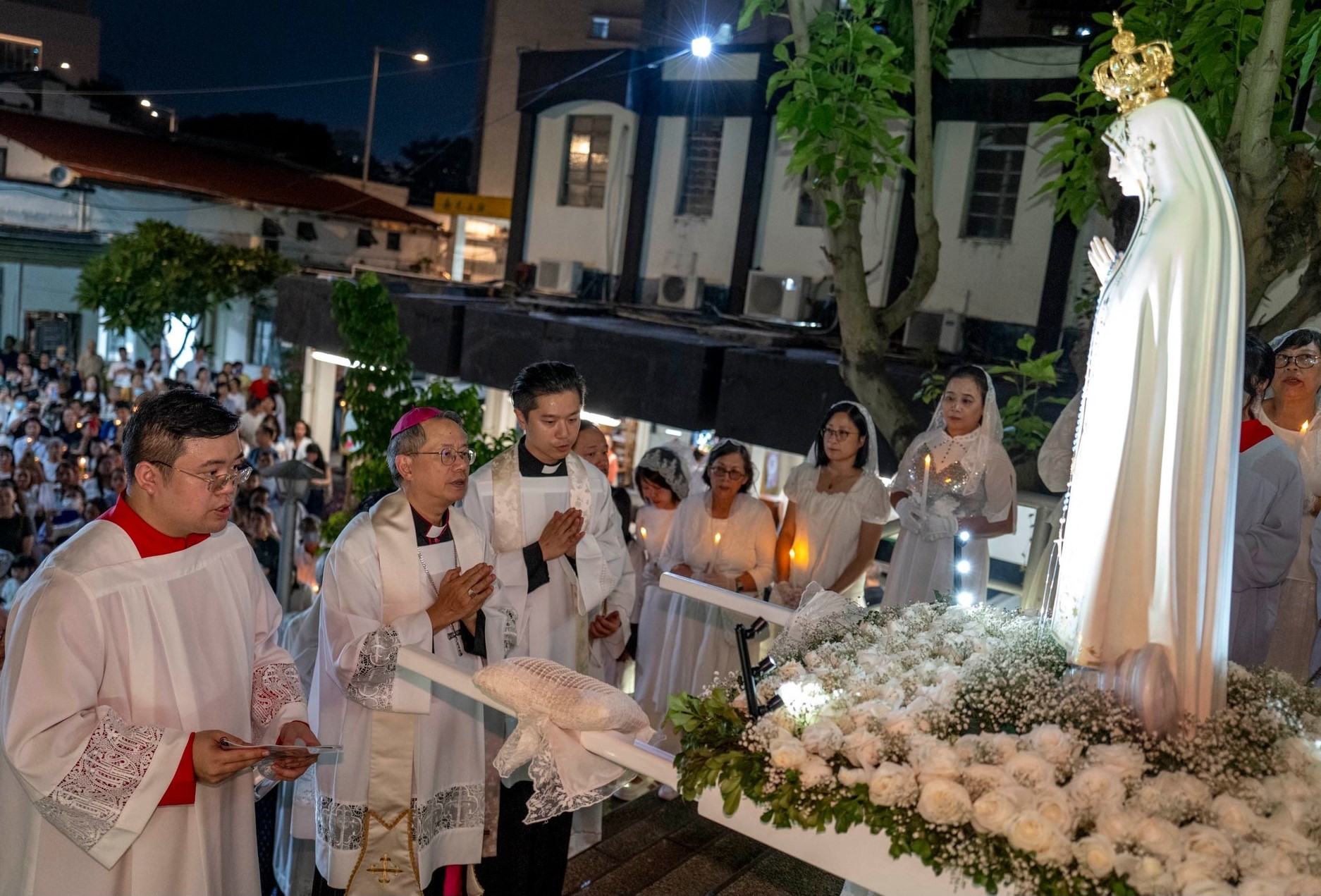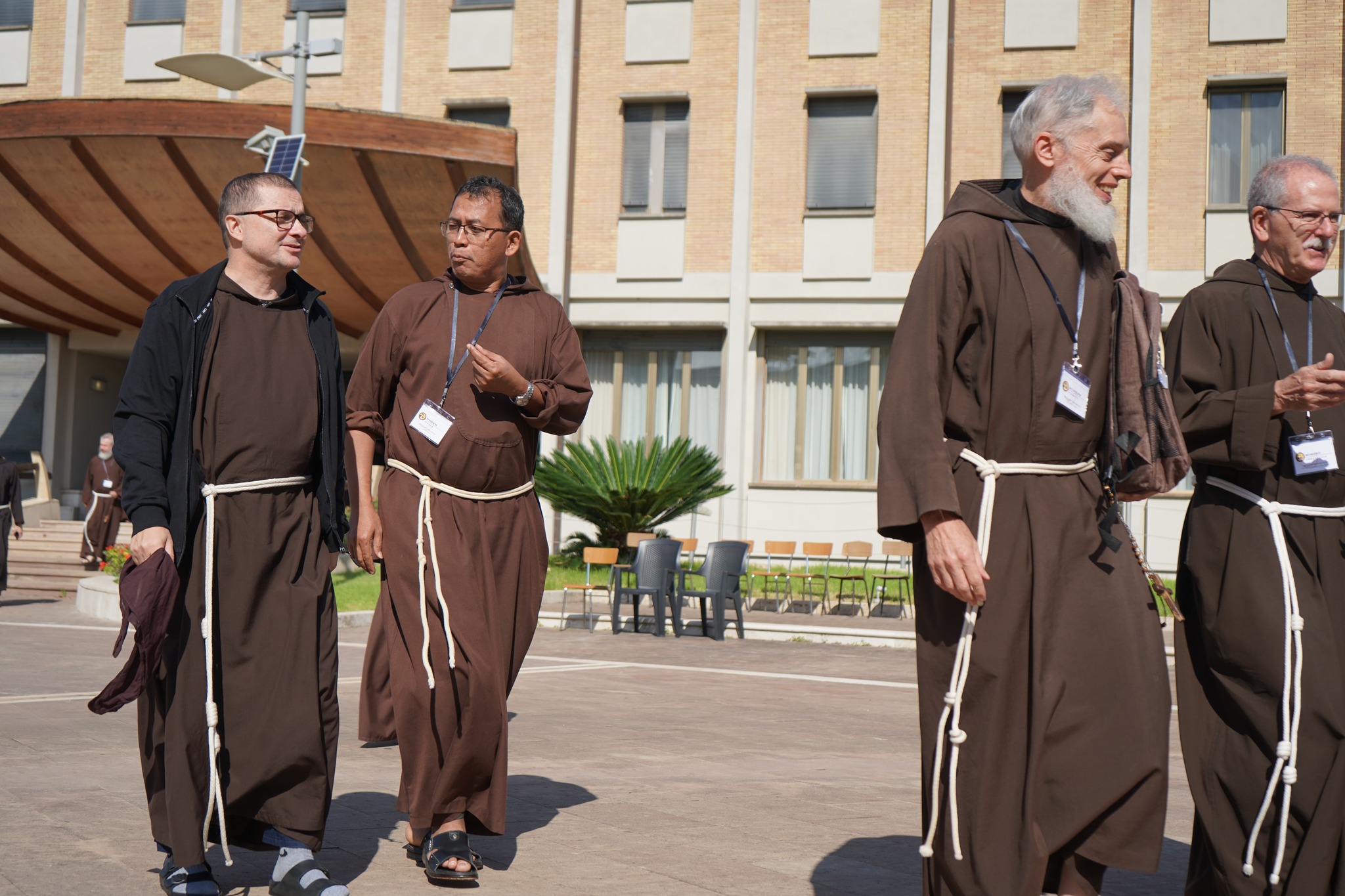Speaking on the important role played by the Catholic Church in Ethiopia, Franciscan Missionaries of Our Lady Sr Lishan Michael recalls the help given to the most disadvantaged people and the work carried out with the Government to strengthen peace. She demystifies the idea of her home country being totally poor and praises the peaceful relations between Catholics and Muslims. Staying in Macau for two years already, she mentions how it’s like to learn Portuguese, and doesn’t forget the crucial aid given by the Portuguese regarding the protection of Christianity in Abyssinia of the sixteenth century.
PEDRO DANIEL OLIVEIRA
Nowadays, when we talk about Ethiopia many people tend to think it’s a poor country. Nevertheless, some economic indexes are showing another reality. Which of these two realities is the most correct?
It was very poor before. Now it’s a developed country, if we have in mind the major cities, and not only our capital Addis Ababa. Nevertheless, there’s still poverty in the countryside.
How does the Catholic Church contribute for a new Ethiopia?
The role of the Church is very important in rural areas. It helps the poor who have nothing, praying for them and encouraging them. It’s not only to keep their faith, but also for everything else. Sometimes it gives them money, other times builds them houses. It also works with the Government to strengthen the peace and to give better quality of life to people. Since it’s a peaceful country and in development, the Church can work for the people.
Although the majority of population in your country is Christian, it’s also a fact that Catholics are a minority. Even so, how do the Catholics differ from other beliefs?
We are so different because we don’t separate ourselves from the Muslims, Orthodox and Protestants. The Catholic Church treats everyone the same, regardless of the Christian denomination or other religion professed. The country is very much peaceful in terms of religion. The Muslims are very peaceful. They treat Catholics the same way we treat them. Nevertheless, there are some problems, especially with some Orthodox people who are against the Catholic religion.
Ethiopia has its borders with several Muslim countries. How does it deal with terrorism?
We had some difficulties before. Now we are a peaceful country. There are some problems in Somalia and Kenya, but those problems are very far away from Ethiopia.
We can barely find an African religious working in Macau. Is it correct to say that Africa is having shortage of religious manpower?
Yes, yes! I really don’t know why. I also question that. Perhaps, because there’s a lot of poor people who need help in Africa.
How many years have you spent in Macau? Why Macau?
I was sent by my Superior in Ethiopia, and I’ve been here for two years already to serve with the sisters of my congregation. I have never heard [of this territory] before. I didn’t even know its location on the map. I was amazed after my Superior told me to come to Macau.
How’s your daily life in Macau?
As a religious, in Ethiopia we work in hospitals, churches, schools, and we visit the sick people. In Macau is more or less the same. In my case, I haven’t really started working yet. I’m in the preparation phase due to language issues, as I am still learning Portuguese. However, I help our sisters who work at the Parish level or go to the hospital [visiting the sick.]
You mentioned that you are learning Portuguese. Is it a difficult language?
Yes, it is. Previously, I had no contact with Portuguese. It’s quite difficult, especially the sentence structure. Now I’m getting better. I speak the basics, such as “bom dia” (good morning), “boa tarde” (good afternoon) and so on. If someone speaks the language I can understand it. It’s easier to hear than to talk. I can also write, although it’s difficult.
Are you aware of the role played by the Portuguese in the protection of Christianity in Abyssinia of the sixteenth century?
I know a little about history. It’s related to the attempt of the Muslims, who wanted to Islamize our territory. The Portuguese prevented this from happening, by providing military aid.
Where would you like to continue your evangelizing mission after Macau?
I saw the [congregation] sisters working at a school in Harar, where I lived, when I was 25 years old. I was pleased, and asked to join them. I immediately entered the congregation, and after completing my studies, I continued with the spirituality. In Ethiopia we have 12 communities. Of these, I have been in eight, including Addis Ababa and Nazret [also known as Adama.] I was then sent to Macau, where I’ve been for two years. As for the future, I do not know. Only God knows.


 Follow
Follow


